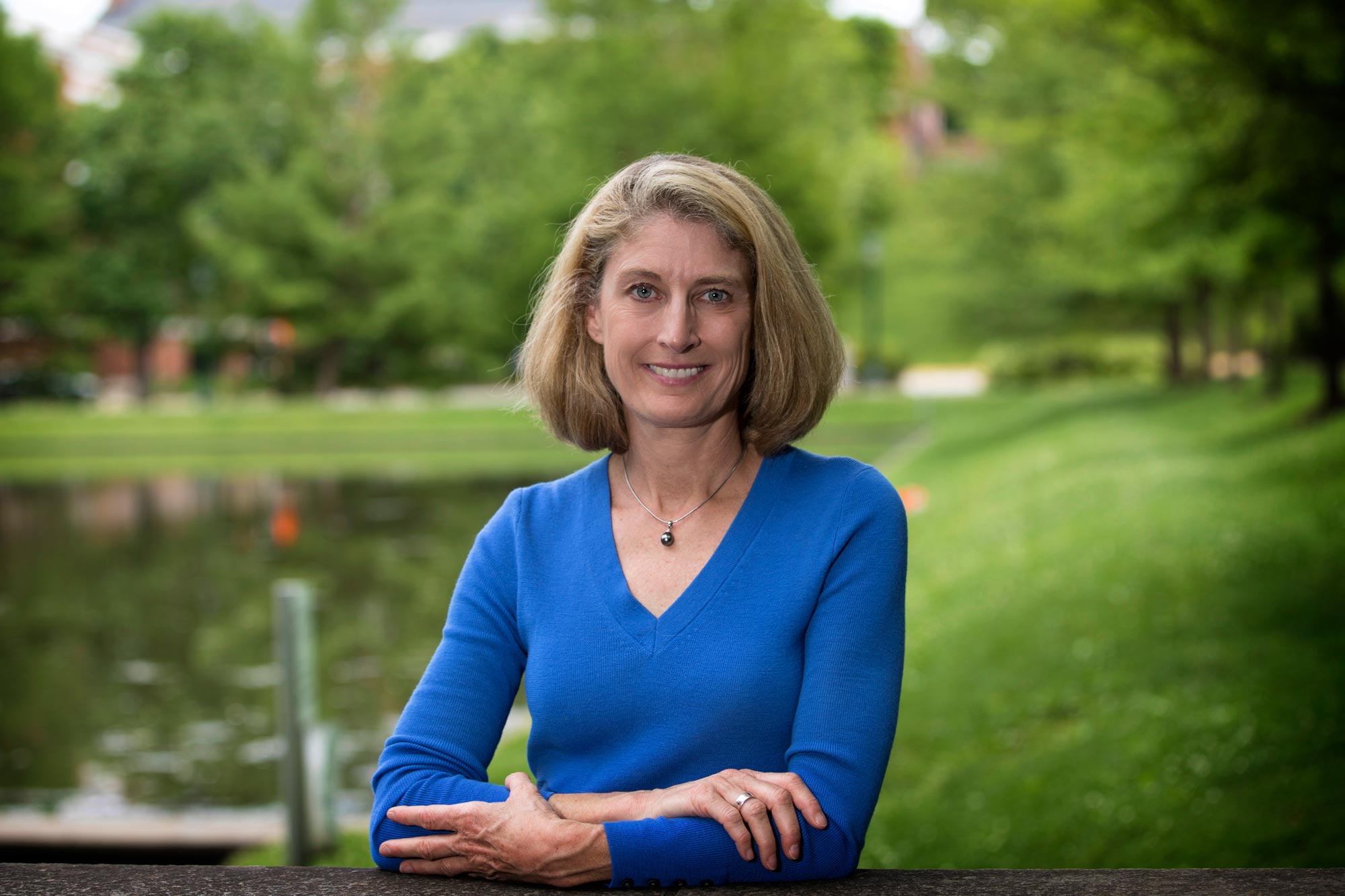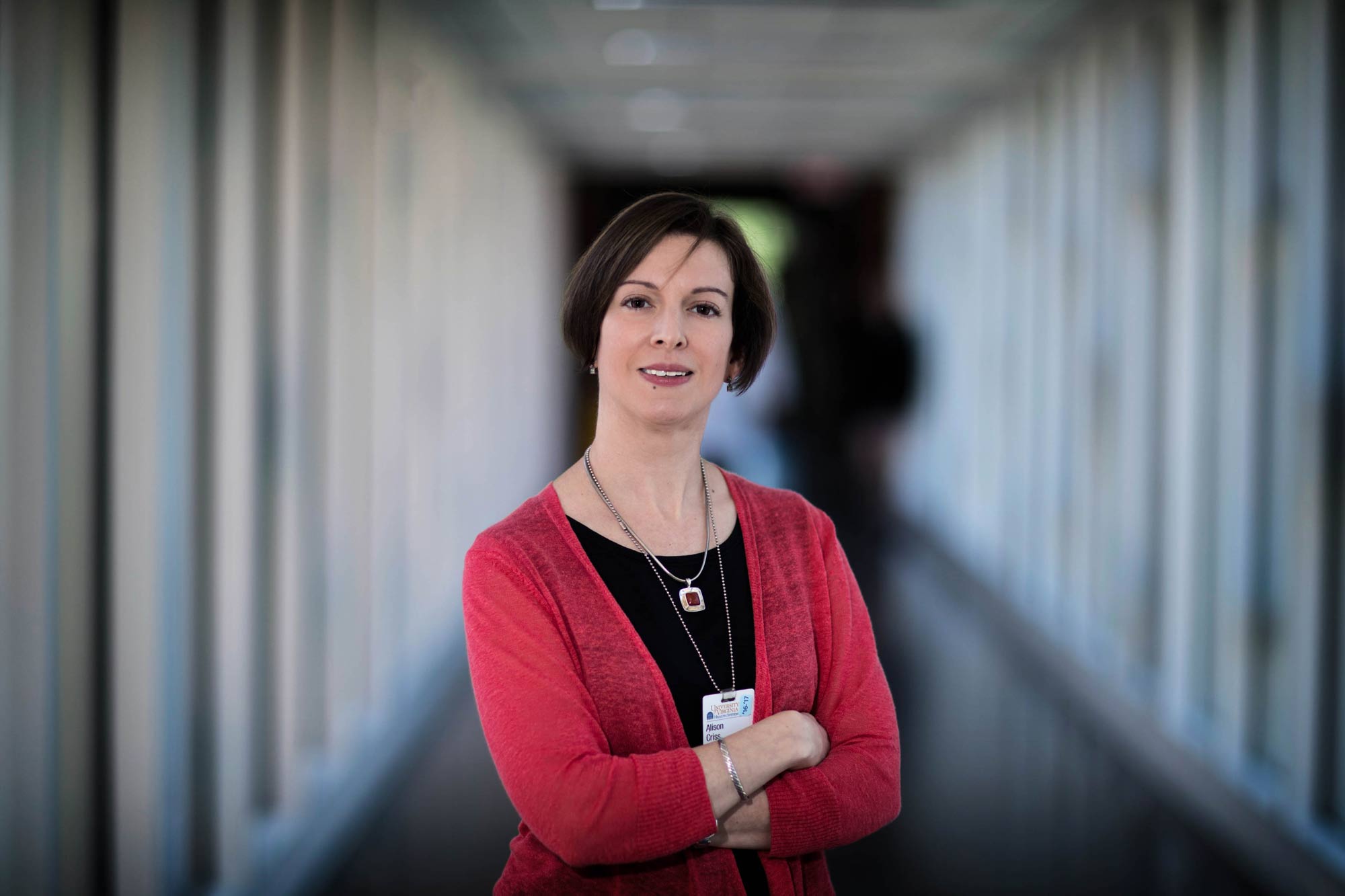The huge societal challenges of global infectious diseases and a rapidly changing climate are now key transdisciplinary focus areas at the University of Virginia under two newly established, pan-University institutes.
The UVA Environmental Resilience Institute and the Global Infectious Diseases Institute will each bring together top researchers from a range of disciplines at UVA to tackle some of the biggest problems facing society.
Three years ago, the University began an initiative under its strategic Cornerstone Plan to tackle major 21st-century issues by establishing up to five institutes drawing on the University’s broad and specific intellectual capital. The UVA Data Science Institute – the first, and established in 2014 – facilitates data-intensive research, analytics, management and education across the University. The UVA Brain Institute, established last year, focuses on better understanding the human body’s most complex organ.

And now, major UVA resources are being dedicated to problems involving the environment and infectious diseases, globally related issues with myriad challenges. Each institute is initially funded with a three-year, $2 million grant from the University, and spearheaded by the offices of the Executive Vice President and Provost and of the Vice President for Research. The institutes use this seed money to organize and then produce multi-faceted grant proposals to earn additional long-term funding from federal and state agencies, foundations and private donors.
“We know that the solutions to many of our most challenging global problems lie at the intersections of disciplines,” UVA President Teresa A. Sullivan said. “By assembling talented, multi-disciplinary faculty teams to address environmental change and to study infectious diseases, we are confronting two of the 21st century’s most vexing problems head-on.”
Environmental sciences professor Karen McGlathery will lead the Environmental Resilience Institute. Alison Criss, an associate professor of microbiology, immunology, and cancer biology, will head the Global Infectious Diseases Institute.
“Both of these proposals really captured the essence of the pan-University challenge, expertly bringing together multiple disciplines in a novel way to address complex societal issues,” Thomas C. Katsouleas, executive vice president and provost, said. “These institutes have great teams with extraordinary leaders at the helm, and I am excited about the advances they will make over the next few years.”
The Environmental Resilience Institute will seek to accelerate solutions to urgent social-environmental challenges such as coastal flooding and storm impacts in coastal regions, as well as water security. This requires collaborative research where human, natural and infrastructure systems converge and that integrates new models, sensing tools, big data, narratives, designs and behavioral research.

Environmental sciences professor Karen McGlathery is leading the new UVA Environmental Resilience Institute. (Photos by Dan Addison, University Communications)
UVA already has a strong multidisciplinary research department in environmental sciences, and the new institute will bring together faculty and resources there with problem-solvers in disciplines across the University to deal with big-picture, long-term environmental problems affected by societal decisions of the present.
“The pace and dimensions of environmental change are now greater than at any other time in human history,” McGlathery said. “This affects economics, security and the human condition throughout the world.”
She noted that well over half the world’s population lives along coasts and the rivers that feed them, including 11 of Earth’s 15 largest cities, which are increasingly affected by flooding, frequent storms and declining water quality.
“These are wicked problems that cannot be solved by a single discipline,” McGlathery said. “They require the kind of transdisciplinary collaboration and training that the Environmental Resilience Institute will catalyze between environmental scientists, engineers, designers, social scientists, humanists, educators, lawyers and business innovators. UVA has never been in a better position to achieve preeminence in this space – we are building on a strong faculty community in all 11 schools, new cluster hires in Arts & Sciences, Engineering and Architecture, and partnerships in the U.S. and abroad.”
The Global Infectious Diseases Institute will catalyze transdisciplinary research to combat the most notorious and urgent infectious threats afflicting humankind, including epidemics like Ebola, untreatable “superbugs” and the diarrheal infections that kill hundreds of thousands of children around the world each year. This institute will solidify UVA’s global footprint through international partnerships and collaborations while seeking new funding for high-impact, transformative research. By promoting scholarly activity revolving around infectious diseases, the institute will educate and train the next generation of lab, social science and clinical researchers, engineers, educators, policymakers and entrepreneurs.

Alison Criss, an associate professor of microbiology, immunology, and cancer biology, will head the new Global Infectious Diseases Institute.
“Infectious diseases continue to wreak global havoc – the current outbreaks of Ebola in Congo and cholera in Yemen as two examples,” Criss said. “With an infectious agent a flight away from anywhere in the world, infectious diseases are inextricably linked to issues of human health as well as national security, human rights, international law, cultural practices and public health infrastructure.
“Concerted responses to global infectious threats require research and communication across traditional disciplinary lines, spanning science, engineering, medicine, social sciences, nursing, law, education and public policy. With a thriving culture of cross-Grounds collaborations and longstanding international partnerships, the UVA Global Infectious Diseases Institute is poised to have a major impact in local, national and international communities.”
Katsouleas; Phillip A. Parrish, interim vice president for research; and a committee involving vice provosts and a representative of the UVA Faculty Senate selected the two new institutes from among several proposals by faculty leaders across Grounds during an invited competitive selection process over the past several months. A team of expert reviewers from within and outside the University evaluated the ideas, and ultimately the University selected both environmental change and infectious diseases as the subjects on which to build the University’s newest institutes.
“It is our intention that these institutes will elevate UVA from prominence to preeminence in these two areas,” Katsouleas said.
The pan-University initiative is designed to distinguish the University in a handful of key areas and establish its research and educational tone for the next decade and beyond. Hundreds of current faculty members from more than a dozen departments across Grounds and from the Data Science Institute will participate in these new efforts.
“UVA’s strategy to distinguish itself through transdisciplinary research and scholarship addressing areas of critical global societal need is being further realized through the formation of these two new pan-University institutes, and positions UVA to be highly competitive in pursuit of major grant and philanthropic opportunities,” Parrish said.
The University will recognize the two new institute teams and finalists during a celebration event in the fall. At that time, a seed grants competition will open to enable faculty teams to work together toward creating the next pan-University institute.
Media Contact
Article Information
June 7, 2017
/content/uva-launches-new-institutes-one-environment-one-global-infections

